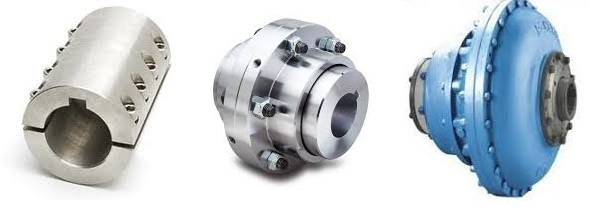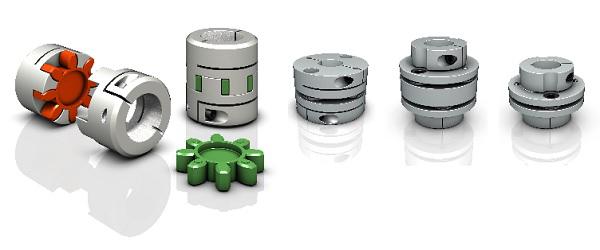Marine Shaft Coupling
Introduction to Marine Shaft Coupling
Marine shaft couplings are pivotal in ensuring the efficient transmission of power from the engine to the propeller. Their design and functionality are critical for maintaining propulsion system integrity under various maritime conditions.
Types of Marine Shaft Couplings
There are several types of marine shaft couplings, each suited for different maritime applications. These include rigid couplings, flexible couplings, and fluid couplings.
Key Features of Marine Shaft Couplings
Marine shaft couplings are characterized by their ability to accommodate misalignment, absorb shocks and vibrations, and provide reliable transmission of power. Their robust construction ensures durability even in harsh marine environments.
Materials Used in Marine Shaft Couplings
These couplings are typically made from high-strength materials such as stainless steel, bronze, and composite materials to withstand the corrosive effects of seawater and the mechanical stresses encountered.
The Importance of Alignment in Marine Shaft Couplings
Proper alignment is vital for the longevity and performance of marine shaft couplings. Misalignment can lead to excessive wear, vibration, and even catastrophic failure of the propulsion system.
Installation and Maintenance of Marine Shaft Couplings
Installing and maintaining marine shaft couplings requires precision and expertise. Regular inspections and maintenance are essential to identify and rectify potential issues before they escalate.
Innovations in Marine Shaft Coupling Technology
Advancements in materials science and engineering have led to the development of more efficient, lightweight, and durable marine shaft couplings. These innovations help improve fuel efficiency and reduce maintenance costs.
Common Problems and Solutions in Marine Shaft Couplings
Common issues include misalignment, excessive vibration, and wear. Solutions involve regular monitoring, proper installation, and the use of high-quality materials and designs.
Applications of Marine Shaft Couplings
Marine shaft couplings are used in various types of vessels, from small fishing boats to large container ships. Their role is critical in ensuring smooth and efficient propulsion.
The Role of Marine Shaft Couplings in Fuel Efficiency
By ensuring efficient power transmission and reducing mechanical losses, marine shaft couplings play a significant role in improving the fuel efficiency of maritime vessels.
Environmental Considerations in Marine Shaft Couplings
Modern marine shaft couplings are designed with environmental sustainability in mind. This includes using eco-friendly materials and designs that minimize energy loss and emissions.
Cost Implications of Marine Shaft Couplings
The initial cost of high-quality marine shaft couplings may be higher, but their durability and efficiency often result in lower long-term costs due to reduced maintenance and improved fuel efficiency.
Marine Shaft Couplings in Commercial Shipping
In commercial shipping, the reliability of marine shaft couplings is paramount. They ensure that ships can operate continuously and efficiently, minimizing downtime and operational costs.
Future Trends in Marine Shaft Coupling Design
Future trends include the integration of smart technologies for real-time monitoring and the use of advanced materials and manufacturing techniques to enhance performance and durability.
Case Studies of Marine Shaft Coupling Failure
Analyzing case studies of marine shaft coupling failures helps in understanding the common causes and developing better designs and maintenance practices to prevent such failures in the future.

What are the three types of coupling?
There are three primary types of couplings used in various industries:
- Rigid Couplings: These couplings provide a solid connection between two shafts, ensuring precise alignment and minimal backlash. They are typically used in applications where alignment is critical and there is no room for shaft movement.
- Flexible Couplings: Designed to accommodate slight misalignments and absorb shock loads, flexible couplings are commonly used in applications where shafts may be subjected to movement and vibrations.
- Fluid Couplings: Utilizing a hydraulic medium to transmit torque, fluid couplings offer smooth power transmission and are ideal for applications requiring variable speed control and soft starts.

What coupling is used to connect two shafts?
When connecting two shafts, several parameters and actual conditions must be considered:
- Torque Requirements: The coupling must be able to handle the torque being transmitted without failing or causing excessive wear.
- Misalignment Tolerance: The coupling should accommodate any misalignment between the two shafts to prevent undue stress and wear.
- Operating Environment: Factors such as temperature, humidity, and exposure to corrosive substances must be considered when selecting the coupling material and design.
- Speed: The rotational speed of the shafts will influence the choice of coupling, as high-speed applications may require specially balanced couplings.
- Space Constraints: The physical space available for the coupling must be taken into account to ensure proper installation and operation.

What are the two general types of shaft couplings?
Shaft couplings can generally be classified into two types:
- Rigid Couplings: Rigid couplings are used when precise alignment is required, and there is no allowance for shaft movement. They provide a strong, fixed connection between shafts.
- Flexible Couplings: These couplings are designed to accommodate misalignment, absorb shocks, and reduce vibration. They are used in applications where the shafts are subject to movement or alignment changes.
HZPT – Your Trusted Partner for Shaft Couplings
HZPT is located in Hangzhou, Zhejiang Province, and is a modern enterprise integrating R&D, manufacturing, and international trade. We adhere to our core values of “integrity” as our business philosophy, focusing on unity, innovation, and progress. Our business spans Asia, Europe, Africa, and North America, and we are dedicated to becoming a globally influential international group. Our company specializes in the production of various types of couplings, including gear couplings, spring pin couplings, serpentine spring couplings, universal couplings, star couplings, expansion couplings, diaphragm couplings, and tire couplings.
We have a complete and scientific quality management system, including our own technical development and testing departments. We hold certifications such as CQC, ISO, and CE, ensuring that our products meet the highest quality standards. We offer excellent sales service and technical support, serving over a hundred partner enterprises. We adhere to the principle of “people-oriented, customer first,” and work together with our customers for mutual development.
We highly recommend our shaft coupling products for the following reasons:
- High-Quality Materials: Our couplings are made from top-grade materials that ensure durability and performance, even in harsh conditions.
- Advanced Manufacturing Techniques: We utilize cutting-edge manufacturing processes to produce couplings with precise tolerances and superior quality.
- Comprehensive Quality Control: Our strict quality control measures ensure that each coupling meets rigorous standards before it reaches our customers.
- Customization Options: We offer customizable solutions to meet the specific needs of our clients, ensuring optimal performance and compatibility.
- Global Reach and Support: With a presence in multiple regions, we provide timely and efficient support and services to our customers worldwide.
